Why are history majors successful in political and public policy careers?
The Greek historian Polybius noted that “The study of history is in the truest sense an education and a training for political life.” This wisdom has echoed across more than twenty centuries and, in the United States, has been proven true by the fact that five of the fifteen American presidents since World War II have been undergraduate history majors and that history majors are overrepresented—by more than five times the general population—among members of Congress, the Cabinet, major-city mayors, and state governors. Why?
“. . . the study of history develops a particular kind of mental power of precisely the type required in the discussion of political problems, viz., the power of reasoning from uncertain data and of judging [people’s] thoughts and feelings through their acts.”
—“The Teaching of History,” The School World
“. . . . a proper study of history develops the ‘judgement respecting the civil affairs of [humans],’ ‘engenders a spirit of toleration,’ trains the student to ‘exercise the reconstructive imagination,’ and assists [the student] ‘to develop [a] permanent attitude towards political liberty and self-government.’”
—North Carolina Department of Public Instruction, Educational Bulletin
“. . . [in ancient China] scholars were expected to know history well, for despite changes in time and dynasty, a study of the past allowed one, it was said, to ‘cope with the myriad through the unvarying principle.’ Therefore, wise rulers were the ones who used history as guidance for the present. These saintly scholars were entrusted with running the government and, more important, with providing living examples of moral leadership for the larger society.
—David Foster, Writing and Learning in Cross-National Perspective
“[The British war cabinet] met that night expecting, reasonably enough, to discuss possible German attack; instead, they probed the challenges faced by William the Conqueror in 1066. In 1944, just before D-Day, Churchill asked for all the data on weather, time, and conditions when William had landed on English shores—again, he wanted to study this last successful invasion, even if it had taken place nearly nine hundred years before. This study of history allowed him to see what others missed. Few had shared his belief in Russia’s ability to hold out against Germany in 1941; the Americans estimated that Russia would last only three months. Churchill argued he would bet that in two years’ time, Russia would still be fighting [and that the] generals should read about Napoleon and the 1812 retreat from Moscow.”
—Gretchen Rubin, Forty Ways to Look at Winston Churchill
“. . . Churchill seldom had to explain why his warnings or predictions did not come to pass. Quite the opposite; some of his long-range predictions, especially concerning technology, are coming true right now. How did Churchill acquire this foresight? What advice did he give to anyone wishing to understand the statesmen’s art? His simple and frequently repeated advice can be boiled down to two words that he shared with me when I met him while an exchange student in England in 1953: ‘Study history, study history.’ He added ‘In history lie all the secrets of statecraft.’ It was a familiar lesson for those close to Churchill. He gave the same advice to his grandson, Winston S. Churchill II, when the boy was only eight years old. ‘Learn all you can about the past,’ Churchill wrote to his grandson in 1948, when the younger Winston was away at boarding school, ‘for how else can anyone make a guess about what is going to happen in the future?’ I shared Churchill’s advice with Richard Nixon, for whom I worked as a speechwriter. Nixon expressed his appreciation of Churchill’s skill as a prophet. ‘Churchill had the mind of an historian and the courage of a soldier. First, Churchill could see the patterns of the past being repeated in the present, and second, he had no fear of risking political death by going against the polls or conventional wisdom.’ Nixon added that ‘the vision of Churchill was all-encompassing as it spanned not only the world of diplomacy and politics but the sphere of technology.’ . . . History for Churchill was a source of imagination about how the future would change, which is why he wrote, ‘The longer you look back, the farther you can look forward.’ Churchill exemplifies a saying attributed to Thucydides that ‘history is philosophy teaching by example.’ The modern philosopher Isaiah Berlin wrote that Churchill had ‘a historical imagination so strong, so comprehensive, as to encase the whole of the present and the whole of the future in a framework of a rich and multicolored past.’ . . . . Churchill’s emphasis on history has led some to suppose that he was merely ‘a man of the past.’ Churchill’s abiding interest in history, and the powerful imagination it produced was not simply a variation of the idea that ‘history repeats itself,’ or what social scientists call ‘pattern recognition.’ He intuited technological and social changes that no historical precedent would have suggested. He anticipated far ahead of time such features of the modern world as nuclear weapons, wireless communications, terrorism, increasingly superficial media coverage of government, and giant government bureaucracies. . . . Churchill’s historical imagination was keenly attuned to the irregular rhythms of extraordinary change.
—James C. Humes, Churchill: The Prophet
“History is not only important for understanding the past and present, but also for shaping the future. By studying the causes and effects of past events, we can identify patterns and make predictions about future outcomes. This knowledge can be used to inform policy decisions and help us build a better future for ourselves and future generations. In sum, the significance of history knowledge in understanding world history cannot be overstated. It teaches us about the past, helps us navigate the present, inspires us for the future, and shapes our sense of identity and community. As the famous historian Edward Gibbon once said, ‘History is indeed little more than the register of the crimes, follies, and misfortunes of mankind. But if we are to study the past, we must be prepared for surprises.’”
—Amena Muhammed Ali, “Uncovering the Significance of History in Interpreting Our Present World”
“Studying the past allows us to understand the factors that influence the present. Knowledge of these factors allows policy makers to better understand the potential ramifications of alternate policy alternatives.”
—Edward Eugene Middleton, Interagency Coordination
“. . . economic crises, such as the Great Depression, offer valuable lessons for policymakers and economists grappling with the current economic challenges. The causes of the Great Depression, including financial instability, speculative bubbles, and income inequality, continue to resonate with our current economic landscape. By studying the responses of policymakers to the crisis, we can identify the limits of monetary policy, the importance of fiscal policy, and the need for social safety nets.”
—Amena Muhammed Ali, “Uncovering the Significance of History in Interpreting Our Present World”
“I have also worked in the political field on campaigns and for a councilmember from the city of New York. Although many feel history is an impractical degree, the study of history, particularly of politics, governments and mass movements provides a wealth of knowledge from which one can use to create political policy.”
—David Joffe, “What to Do with History,”
“The study of history is crucial for our understanding of the world and our ability to navigate contemporary challenges. By examining past events and movements, we can learn valuable lessons about the importance of diplomacy, economic stability, and social justice. The insights gained through the study of history can inform our decisions as citizens, policymakers, and leaders, and help us to build a more just and equitable society.”
—Amena Muhammed Ali, “Uncovering the Significance of History in Interpreting Our Present World”
“Studying change across time and place is like having the broadest imaginable bird’s-eye view of the world. As the closest we’ll ever get to a time machine, historical study exposes students to the incredible diversity of human experience and behavior, while they also learn to rationally analyze the connections between people’s context, their actions, and their worldviews. Every individual sees the world as through a pinhole, with the vast majority invisible. History is about gathering these individual perspectives and analyzing how they interrelate, including weighing which perspectives provide the most convincing explanations of known facts.”
—Katherine Pickering, The Essential Guide to Writing History Essays
“Courts, legislators, and lawmakers need to understand history. . . . the reform argument must reflect an honest assessment of what really happened, why it happened, and what effects were felt afterward. Only then can reform advocates make the convincing case that certain regulations are in fact the prescription for some political ailment.”
—Allison R. Hayward, “Revisiting the Fable of Reform”
Notable people in political and public policy careers who majored in history

Joseph R. Biden, President of the United States
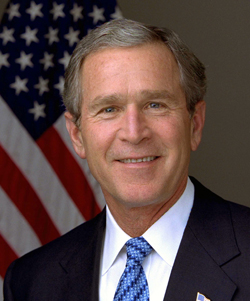
George W. Bush, President of the United States
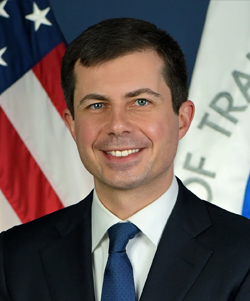
Pete Buttigieg, U.S. Secretary of Transportation

Jim Clyburn, U.S. Representative, South Carolina; assistant Democratic leader in the House
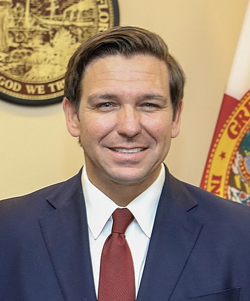
Ron DeSantis, Governor of Florida
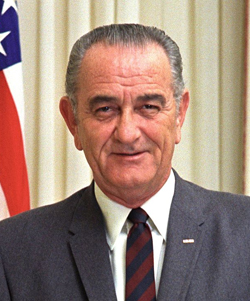
Lyndon B. Johnson, President of the United States
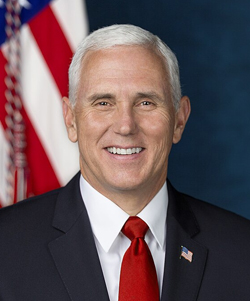
Mike Pence, former Vice President of the United States
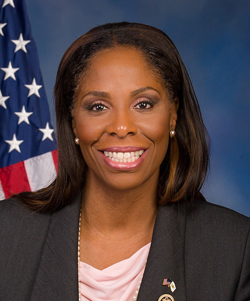
Stacey Plaskett, U.S. Virgin Islands delegate to Congress
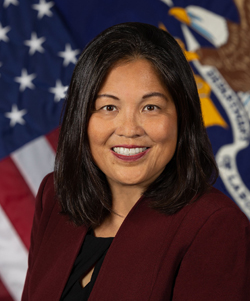
Julie Su, U.S. Secretary of Labor
Others
Steve Abbott, Chief of Staff to Senator Susan Collins
Roberta Achtenberg, former member, U.S. Commission on Civil Rights
Jonathan Adelstein, former FCC Commissioner
Kazi Zafar Ahmed, former prime minister of Bangladesh
Laolu Akande, spokesperson for the Vice President of Nigeria
Lamar Alexander, former U.S. Senator from Tennessee
Ilham Aliyev, President of Azerbaijan
Aimee Allison, founder, She the People
William G. Allman, former White House Curator
Colin Allred, U.S. Representative, Texas
Carlos Álvarez, former Vice President of Argentina
Michael Ancram, former Deputy Leader of the UK Conservative Party
John Anderson, Deputy Prime Minister of Australia
William C. Anderson, former Assistant Secretary of the U.S. Air Force
Les Aspin, U.S. Secretary of Defense under Clinton
James Baba, State Minister for Internal Affairs, Uganda
Leirion Gaylor Baird, mayor of Lincoln, Nebraska
James Baker, U.S. Secretary of State under George H.W. Bush
Kenneth Baker, former conservative MP, Home Secretary, Education Secretary, UK
John Baldacci, former governor of Maine
Stanley Baldwin, former Prime Minister of Great Britain
Jan Peter Balkenende, former Prime Minister of the Netherlands
Hastings Banda, former prime minister and former president of Malawi
Gordon Barnhart, former Clerk of the Senate and Lt. Governor of Saskatchewan
James Bartleman, former Lieutenant Governor of Ontario
William G. Batchelder III, former Speaker of the Ohio House of Representatives
Princess Beatrice of York
Tommy Beaudreau, Deputy U.S. Secretary of the Interior
Michael Bennet, U.S. Senator from Colorado
Steve Beshear, former governor of Kentucky
Rod Blagojevich, former Governor of Illinois
Matt Blunt, former Governor of Missouri
Roy Blunt, former U.S. Senator from Missouri
Rob Bonta, Attorney General of California
Bill Bradley, former U.S. Senator from New Jersey
Megan Brennan, first female Postmaster General of the United States
Kevin Brooks, Mayor of Cleveland, Tennessee
Gordon Brown, former British Prime Minister
Scott Brown, former U.S. Senator from Massachusetts
William J. Burns, Director of the Central Intelligence Agency
Carrie Cabelka, Assistant U.S. Secretary of State for Administration
Jane L. Campbell, first female mayor of Cleveland, Ohio
Mike Carey, U.S. Representative, Ohio
Arne Carlson, former governor of Minnesota
Brian T. Carroll, American Solidarity Party presidential nominee, 2020
Ash Carter, 25th United States Secretary of Defense
John Carter, U.S. Representative, Texas
Matt Cartwright, U.S. Representative, Pennsylvania
Simon Case, Head of the Home Civil Service, UK
Richard Celeste, former Governor of Ohio
Steve Chabot, former U.S. Representative, Ohio
Ben Chandler, former U.S. Representative, Kentucky
Charles III, King of the United Kingdom
Robin Christiansen, Mayor of Dover, Delaware
Joe Clark, former Prime Minister of Canada
Chelsea Clinton, global public health advocate
Howard Coble, former U.S. Representative, North Carolina
Ezra Cohen, former Acting Undersecretary of Defense for Intelligence
Alan D. Cohn, Asst. Sec. for Strategy, Planning, Analysis & Risk, US DHS
Bill Cole, mayor of Billings, Montana
Tom Cole, U.S. Representative, Oklahoma
Jim Cooper, former U.S. Representative, Tennessee
Sarah Copeland-Hanzas, Secretary of State of Vermont
Archibald Cox, Watergate special prosecutor
Brad Crabtree, Assistant Secretary of Energy for Fossil Energy
John Culberson, former U.S. Representative, Texas
Lloyd Cutler, White House Counsel for Presidents Carter and Clinton
Tom Dart, Sheriff of Cook County, Illinois
Danny K. Davis, U.S. Representative, Illinois
Gray Davis, former Governor of California
Eddie DeLoach, former mayor of Savannah, Georgia
Mark DeSaulnier, U.S. Representative, California
John M. Deutch, former U.S. Deputy Secretary of Defense; former Director of the CIA
Donald Dewar, former First Minister of Scotland
Janet Dhillon, former commissioner and chair, EEOC
Thomas DiNapoli, Comptroller of the State of New York
Matt Dolan, Ohio state senator; candidate for U.S. Senator from Ohio
Michelle Donelan, Secretary of State for Science, Innovation, and Technology, UK
John Doolittle, former U.S. Representative, California
Cristin Dorgelo, Senior Advisor for Management, Office of Management and Budget
Jennifer Dougherty, first female mayor of Frederick, Maryland
J. Michel Doyon, former Lieutenant Governor of Quebec
Eric Dreiband, former Assistant U.S. Attorney General for Civil Rights Division
Craig W. Duehring, former Assistant Secretary of the U.S. Air Force
Michael Dukakis, former Governor of Massachusetts; 1988 Democratic presidential candidate
Mike Dunleavy, Governor of Alaska
Enoh T. Ebong, Director of U.S. Trade and Development Agency
Jim Edgar, former governor of Illinois
David Eisenhower II, public policy fellow, namesake of Camp David
Christine Elliott, former deputy premier of Ontario
Eliot Engel, former U.S. Representative, New York
Diane Feinstein, former U.S. Senator from California
Petr Fiala, Prime Minister of the Czech Republic
Nelson M. Ford, former Undersecretary of the U.S. Army
Andy Foster, former mayor of Wellington, New Zealand
Anthony Foxx, former United States Secretary of Transportation
Rodney Frelinghuysen, former U.S. Representative, New Jersey
Leon Fuerth, National Security Advisor to Vice President Al Gore
J. William Fulbright, former U.S. Senator from Arkansas; namesake, Fulbright Fellowships
Eric J. Fygi, former Deputy General Counsel for U.S. Department of Energy
Paul Gallagher, former Attorney General of Ireland
Robert Gates, former U.S. Secretary of Defense; former Director of Central Intelligence
Pete Gaynor, former acting U.S. Secretary of Homeland Security under Trump
Euan Geddes, Deputy Speaker of the House of Lords, UK
Julius Genachowski, former FCC Chair
Eric Genrich, mayor of Green Bay, Wisconsin
George VI, King of the United Kingdom
Chris Gibson, former U.S. Representative, New York
Newt Gingrich, former Speaker of the United States House of Representatives
Todd Gloria, Mayor of San Diego
Louie Gohmert, former U.S. Representative, Texas
Benjamin Goldman, charter member, National Environmental Justice Advisory Council
Mark Gordon, Governor of Wyoming
Trey Gowdy, former U.S. Representative, South Carolina
Jim Gray, Kentucky Secretary of Transportation; former mayor of Lexington, Kentucky
Albert Grey, former Governor-General of Canada
Alexey Gromov, First Deputy Chief of Staff of Russia
Guillaume, Grand Duke of Luxembourg
Helen Gym, first Asian American woman to serve on the Philadelphia City Council
Chuck Hagel, former U.S. Senator from Nebraska and former Secretary of Defense
Keith R. Hall, former director of the U.S. National Reconnaissance Office
Kenneth O. Hall, former Governor-General of Jamaica
Caitlin Halligan, Solicitor General of the U.S. under Obama
John Hannaford, Clerk of the Privy Council of Canada and Secretary of the Cabinet
Bill Haslam, former governor of Tennessee
Maggie Hassan, U.S. Senator from New Hampshire
Orrin Hatch, former U.S. Senator from Utah
Josh Hawley, U.S. Senator from Missouri
Dan Hays, former Speaker of the Senate of Canada
Deidre Henderson, Lieutenant Governor of Utah
Kathleen Hicks, first female U.S. Deputy Secretary of Defense
Brian Higgins, U.S. Representative, New York
Istvan Hiller, former chairman of the Hungarian Socialist Party
Peter Lai Hing-ling, former Hong Kong administrator
David Hogg, March for Our Lives Co-Founder
Joe Hogsett, Mayor of Indianapolis
Reed Hundt, former FCC Chairman
Jonathan Hunt, former Speaker of the New Zealand House of Representatives
Douglas Hurd, former UK Foreign Secretary and UK Home Secretary
Ahmed Hussen, Canadian Minister of Housing and Diversity and Inclusion
Rosemarie Ives, former Mayor of Redmond, Washington
Eric J. Holcomb, Governor of Indiana
Eric Holder, U.S. Attorney General under Obama
John Horgan, former premier of British Columbia
Panah Huseyn, former Secretary of State and former Prime Minister of Azerbaijan
Augustus Jaspert, former Governor of the British Virginia Islands
Gladwyn Jebb, first Secretary-General of the United Nations
Guðni Th. Jóhannesson, President of Iceland
Eric Johnson, Mayor of Dallas
Lady Bird Johnson, Second Lady of the United States
Nicholas Joicey, Director General, UK Cabinet Office’s Economic and Domestic Secretariat
Burt Jones, Lieutenant Governor of Georgia
Mary Gardiner Jones, first woman to serve as member of the FTC
Pamela S. Karlan, former Principal Deputy Asst. AG, Civil Rights Division, US DOJ
Ardy Kassakhian, former mayor, Glendale, California
Richard Kauffman, Chairman of Energy and Finance for New York
Josh Kaul, Attorney General of Wisconsin
Thomas Kean, former Governor of New Jersey
Frank Keating, former Governor of Oklahoma
Ibrahim Boubacar Keita, former president of Mali
John F. Kennedy, Jr., former political journalist
Ted Kennedy, former U.S. Senator from Massachusetts
Henry Kerner, Special Counsel of the United States
Joe Lang Kershaw, first African-American legislator in Florida since Reconstruction
Salman bin Hamad Al Khalifa, Crown Prince and Prime Minister of Bahrain
Indya Kincannon, Mayor of Knoxville, Tennessee
Jean King, first female lieutenant governor of Hawaii
Mark Kirk, former U.S. Senator from Illinois
Helmut Kohl, former Chancellor of Germany
Howard Krongard, former Inspector General of the U.S. Department of State
Mary Anne Krupsak, first woman to serve as Lieutenant Governor of New York
Madeleine Kunin, former governor of Vermont
Bertha Knight Landes, first female mayor of a major American city (Seattle, Washington)
James Lankford, U.S. Senator from Oklahoma
John B. Larson, U.S. Representative, Connecticut
Greg Lashutka, former mayor of Columbus, Ohio
Bill Lann Lee, Asst. U.S. Attorney General for Civil Rights Division under Clinton
John Leiber, State Treasurer of Wisconsin
Tom Leonard, former Speaker of the Michigan House of Representatives
Hilla Limann, former president of Ghana
Joe Lockhart, White House Press Secretary under Clinton
Frank Luntz, political and communications consultant and pollster
Paul J.F. Lusaka, former president of the UN General Assembly
Neil MacBride, General Counsel, U.S. Department of the Treasury
Kevin C. MacLeod, former secretary to the Queen of Canada and Usher of the Black Rod
Seth Magaziner, U.S. Representative, Rhode Island; former Treasurer of Rhode Island
John Mahama, former President of Ghana
Paul Martin, former Prime Minister of Canada
Clare Martorana, Chief Information Officer of the U.S.
Vincent Massey, former Governor General of Canada
Michael G. Masters, National Director and CEO of the Secure Community Network
Doug Mastriano, 2022 Republican candidate for governor of Pennsylvania
James Mattis, former U.S. Secretary of Defense
Alejandro Mayorkas, U.S. Secretary of Homeland Security
Michael Mayr, Chancellor of Austria at the founding of the first Austrian Republic
Leo T. McCarthy, former Lieutenant Governor of California
Ryan D. McCarthy, former Secretary of the U.S. Army
Betsy McCaughey, former Lieutenant Governor of New York
Michael McCaul, U.S. Representative, Texas; Chair, House Foreign Affairs Comm.
Mitch McConnell, U.S. Senator from Kentucky
Denis McDonough, U.S. Secretary of Veterans Affairs
Don McGahn, former White House Counsel
Bill McGinley, White House Cabinet Secretary under Trump
George McGovern, 1972 Democratic presidential candidate
Jim McGovern, U.S. Representative, Massachusetts
Patrick McHenry, U.S. Representative, North Carolina
W. Fox McKeithen, former Secretary of State of Louisiana
Henry McMaster, Governor of South Carolina
Dee Margo, former mayor of El Paso, Texas
James Meredith, first African-American student admitted to the University of Mississippi
John Merrill, former Secretary of State of Alabama
Christopher C. Miller, former acting U.S. Secretary of Defense
Pam Miller, first female mayor of Lexington, Kentucky
John Mitnick, former General Counsel for U.S. Department of Homeland Security
Mohamed Abdullahi Mohamed, former president of Somalia
Joan Mondale, former Second Lady of the United States
Patrick Morrisey, Attorney General of West Virginia
Robert Mugabe, former Prime Minister and President of Zimbabwe
Michael Mukasey, former U.S. attorney general
Elizabeth Maher Muoio, State Treasurer of New Jersey
Hanna Muralt Muller, former Vice Chancellor of Switzerland
Chris Murphy, U.S. Senator from Connecticut
Wangchuk Namgyel, Speaker of the National Assembly of Bhutan
Naruhito, Emperor of Japan
Greta Neubauer, minority leader, Wisconsin State Assembly
Richard Nixon, President of the United States
Feroz Khan Noon, former prime minister of Pakistan
Sylvestre Ntibantunganya, former president of Burundi
Sam Nunberg, political advisor to Donald Trump's 2016 presidential campaign
Maureen O’Connor, first female Chief Justice of the Supreme Court of Ohio
Ron Oden, first openly gay African-American man elected mayor of U.S. city
Sean O’Keefe, Former Secretary of the U.S. Navy and administrator of NASA
Adel Osseiran, founder of the Lebanese republic and former Speaker of Parliament
Artis Pabriks, Minister for Defence and Deputy Prime Minister of Latvia
Richard Painter, former White House Ethics Lawyer
Douglas L. Parker, Assistant Secretary of Labor for Occupational Safety and Health
Sean Parnell, former Governor of Alaska
Georgi Sedefchov Parvanov, former President of Bulgaria
Chris Patten, last British Governor of Hong Kong
David Paterson, former Governor of New York
Howard W. Peak, former mayor of San Antonio, Texas
Claiborne Pell, former U.S. Senator from Rhode Island; namesake, Pell Grants
David Pepper, former Chair, Ohio Democratic Party
Ed Perlmutter, former U.S. Representative, Colorado
Bev Perdue, first female Governor of North Carolina
Patrick F. Philbin, Deputy Counsel to the President under Trump
Pedro Pierluisi, Governor of Puerto Rico
Lauren Poe, former mayor of Gainesville, Florida
Mike Purzycki, mayor of Wilmington, Delaware
Christina Pushaw, rapid response director for the 2024 DeSantis campaign
Qu Qingshan, president of the Institute of Party History and Literature, China
Wang Qishan, former Vice President of People’s Republic of China
Jason Rae, youngest person elected to the Democratic National Committee to date
Edith Ramirez, former FTC Commissioner and first female chair, FTC
Richard Ravitch, former Lieutenant Governor of New York
Kenneth Reeves, mayor of Cambridge, Massachusetts
Robert Reich, U.S. Secretary of Labor under Clinton
Harry Reid, former U.S. Senator from Utah
William K. Reilly, EPA Administrator under George H.W. Bush
Paul Renner, speaker of the Florida House of Representatives
Gerald A. Reynolds, former Chair, U.S. Commission on Civil Rights
Susan Rice, former Director of U.S. Domestic Policy Council; former UN Ambassador
Neale Richmond, Minister of State of Ireland
Joseph Rodota, political columnist, opposition research innovator
Dana Rohrabacher, former U.S. Representative, California
Franklin Delano Roosevelt, President of the United States
Frank A. Rose, Principal Deputy Administrator, U.S. National Nuclear Security Administration
Max Rose, political commentator, former U.S. Representative, New York
Amber Rudd, former UK Home Secretary
Steve Russell, former U.S. Representative, Oklahoma
Chimediin Saikhanbileg, former Prime Minister of Mongolia
Faisal bin Bandar Al Saud, governor of Riyadh, Saudi Arabia
Andre Sayegh, Mayor of Paterson, New Jersey
Al Schmidt, Secretary of the Commonwealth of Pennsylvania
Kurt Schmoke, first African-American mayor of Baltimore
Mike Schmuhl, chair, Indiana Democratic Party
Pat Schroeder, former U.S. Representative, Colorado; presidential candidate, 1988
Greg Schultz, political adviser to Joe Biden and Barrack Obama
Dan Senor, senior foreign policy adviser to U.S. presidential candidate Mitt Romney, 2012
Walter Shaub, former Director of the U.S. Office of Government Ethics
Richard Shelby, former U.S. Senator from Alabama
Supriya Shrinate, Spokesperson for the Indian National Congress
V.K. Shunglu, former Comptroller and Auditor General of India
Bill Shuster, former U.S. Representative, Pennsylvania
Arnor Sighvatsson, former Deputy Governor of the Central Bank of Iceland
Marina Silva, Brazilian Minister of the Environment and Climate Change
Jamal Simmons, commentator, former communications director for Vice President Harris
Greg Simon, political consultant, health care and telecommunications
Leigha Simonton, U.S. Attorney for the Northern District of Texas
Courtenay Slater, former Chief Economist of the U.S. Department of Commerce
Stephen Edward Smith, political strategist, 1960 Kennedy campaign
Sophie, Princess of Liechtenstein
Ken Spain, founder/partner, political communications firm Narrative Strategies
Ross Spano, former U.S. Representative, Florida
Vladimír Špidla, former Prime Minister, Czech Republic
Greg Stanton, U.S. Representative, Arizona; former mayor of Phoenix
Sarah Steelman, former, State Treasurer of Missouri
Al Stewart, former Acting U.S. Secretary of Labor
Kennedy Stewart, former mayor of Vancouver
David Stockman, Director of the Office of Management and Budget under Reagan
Valeriu Strelet, former Prime Minister of Moldova
Gustav Stresemann, former Chancellor of Germany
Ted Strickland, former Governor of Ohio
Burns Strider, co-founder, The Eleison Group and President, American Values Network
Gerry Studds, first openly gay member of Congress
Katherine Tai, United States Trade Representative
Mauricio J. Tamargo, 14th Chair of the Foreign Claims Settlement Commission
Van Taylor, former U.S. Representative, Texas
U Thant, third Secretary-General of the United Nations
Adrienne Thomas, former Acting Archivist of the United States
Mac Thornberry, former U.S. Representative, Texas
Benito Tiamzon, former Chair, Communist Party of the Philippines
Kathleen Kennedy Townsend, first female Lieutenant Governor of Maryland
Mead Treadwell, former Lieutenant Governor of Alaska
Nguyen Phu Trong, General Secretary of the Communist Party of Vietnam
Polly Trottenberg, Deputy U.S. Secretary of Transportation; former acting FAA Administrator
James Cameron Tudor, first General Secretary of Barbados Provisional General Council
Nina Turner, political commentator, former member, Ohio Senate
Dave Uejio, Chief Strategy Officer, Consumer Financial Protection Bureau
David Uhlmann, Assistant Administrator, EPA Office of Enforcement and Compliance
Mihai-Răzvan Ungureanu, former Prime Minister of Romania
Robert Otto Valdez, Director of the Agency for Healthcare Research and Quality
Donald B. Verrilli, Jr., former Solicitor General of the United States
Antonio Villaraigosa, former mayor of Los Angeles
Tom Vilsack, U.S. Secretary of Agriculture
Angela Nicole Walker, labor organizer, 2020 Vice Presidential candidate, Green Party
Debra Steidel Wall, former acting archivist of the U.S. and head of NARA
George Wallace, Jr., former Governor of Alabama
Sue Wagner, first female Lieutenant Governor of Nevada
Setti Warren, first popularly elected African American mayor in Massachusetts (Newton)
Caspar Weinberger, former U.S. Secretary of Defense
Peter Welch, U.S. Senator from Vermont
Anne Wexler, first woman to head a leading lobbying firm in Washington, D.C.
Michael C. Wholley, former General Counsel for NASA
Willem-Alexander, King of the Netherlands
Beth Ann Williams, member, Privacy and Civil Liberties Oversight Board
Woodrow Wilson, President of the United States
Chad Wolf, former Acting U.S. Secretary of Homeland Security
Todd Young, U.S. Senator from Indiana
Muhammad Zia-ul-Haq, former President of Pakistan
